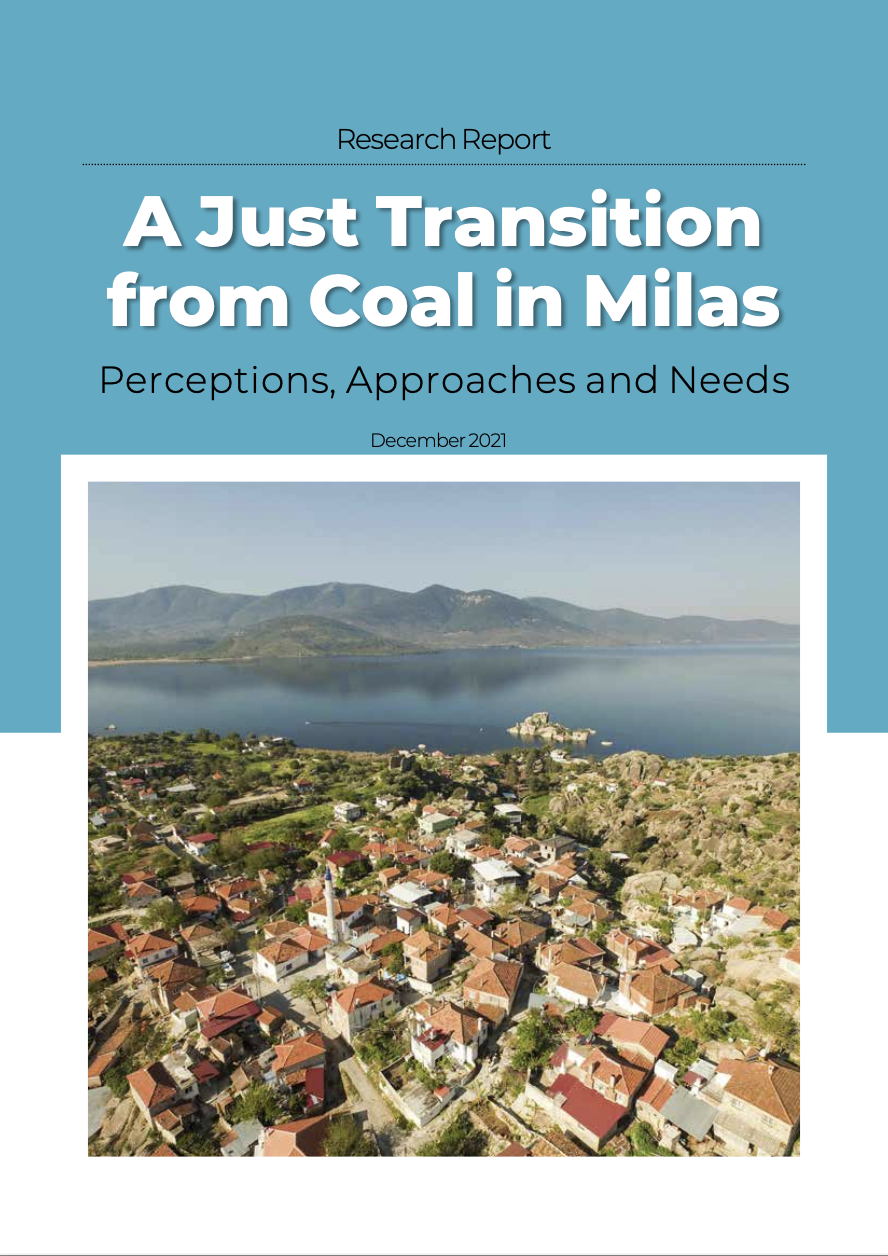One of the most important discussions in the fight against the climate crisis is how to eliminate fossil fuels – especially coal – as a source of energy production in a way that takes into account all segments of society and does not allow new inequalities to emerge.
A just transition to a new energy system requires focusing on the needs and expectations of those who will be directly affected by the consequences of coal phase-out. To that end, this research was conducted in Milas, one of the centres of coal-fired electricity generation in Turkey with two coal-fired power plants and many open mining sites. It aimed to reveal the attitudes, expectations and demands of the local people living in Milas and its surrounding villages towards coal, mining and coal-fired power plants, including the difficulties they may experience during a phase-out of coal, the factors that could facilitate their transition to different work sectors, and the advantages and disadvantages of these sectors.
The research findings paint a picture of Milas district and its people. The majority of the rural population of Milas is engaged in agriculture and small-scale family farming, forming a self-sufficient agricultural society. The most influential stakehold-ers that are trusted and prominent in the district are producer associations. The people of the district make economic decisions at the household level, relatively independently, and seem to be open to innovation and change. In the rural areas of the district, the main problems people say they face are high agricultural input costs, expropriation, air pollution, water shortages, lack of transportation to villages and the impact of the forest fires that broke out in the region in the summer of 2021.
Key findings:
- The Milas region has many potential advantages when it comes to creating new economic re- sources as part of a just transition process. Res- idents have many craft and agricultural production skills, and even those currently working in the coal economy are not disconnected from the land. Milas’ proximity to fertile land and to one of Turkey’s ma- jor tourism centres, Bodrum, make it suitable for the creation of many new employment opportunities.
- The people of Milas do not have a social, cul- tural or emotional connection with coal. When asked about the main livelihoods of the region, lo- cal residents and stakeholders both list activities such as olive cultivation, agriculture, beekeeping and animal husbandry. Mines and power plants are not livelihoods that come to mind quickly, are not identified with Milas and are not considered as a factor that develops the region.
- The damage done by coal to the region was the issue most emphasised by participants in the research. Many problems observed by the people of Milas, including air pollution, loss of agri- cultural yield, olive trees becoming unproductive, increase in cancer and respiratory diseases, and lack of water are associated with coal.
- Although the general perception of coal in Milas is negative and almost all of the pub- lic demands a coal phase-out, the economy is still the determining factor in this debate.
- Young people in Milas who are accustomed to salaried work do not prefer to return to agricultural production if mines and power plants are closed.
-
When alternative sectors that can facilitate an exit from coal are suggested, research findings show that no single sector or livelihood source is emphasised.
Find the executive summary in English here
Find the full report in the Turkish language here

Contacts:
Ozlem Katisöz
Senior Policy Coordinator for Turkey
ozlem.katisoz@caneurope.org
Eleonora Allena
Communication Coordinator for the Western Balkans and Turkey
eleonora.allena@caneurope.org



